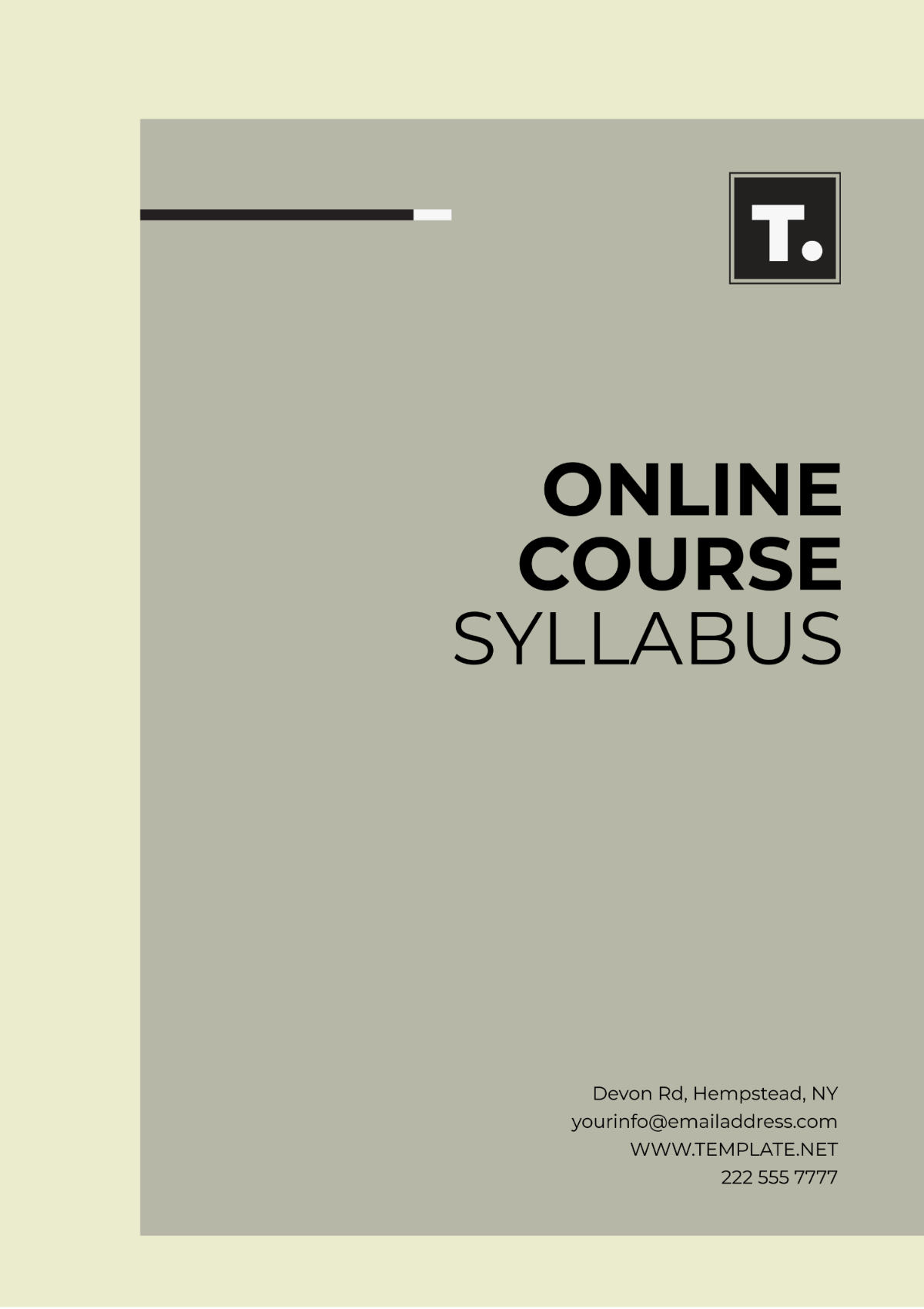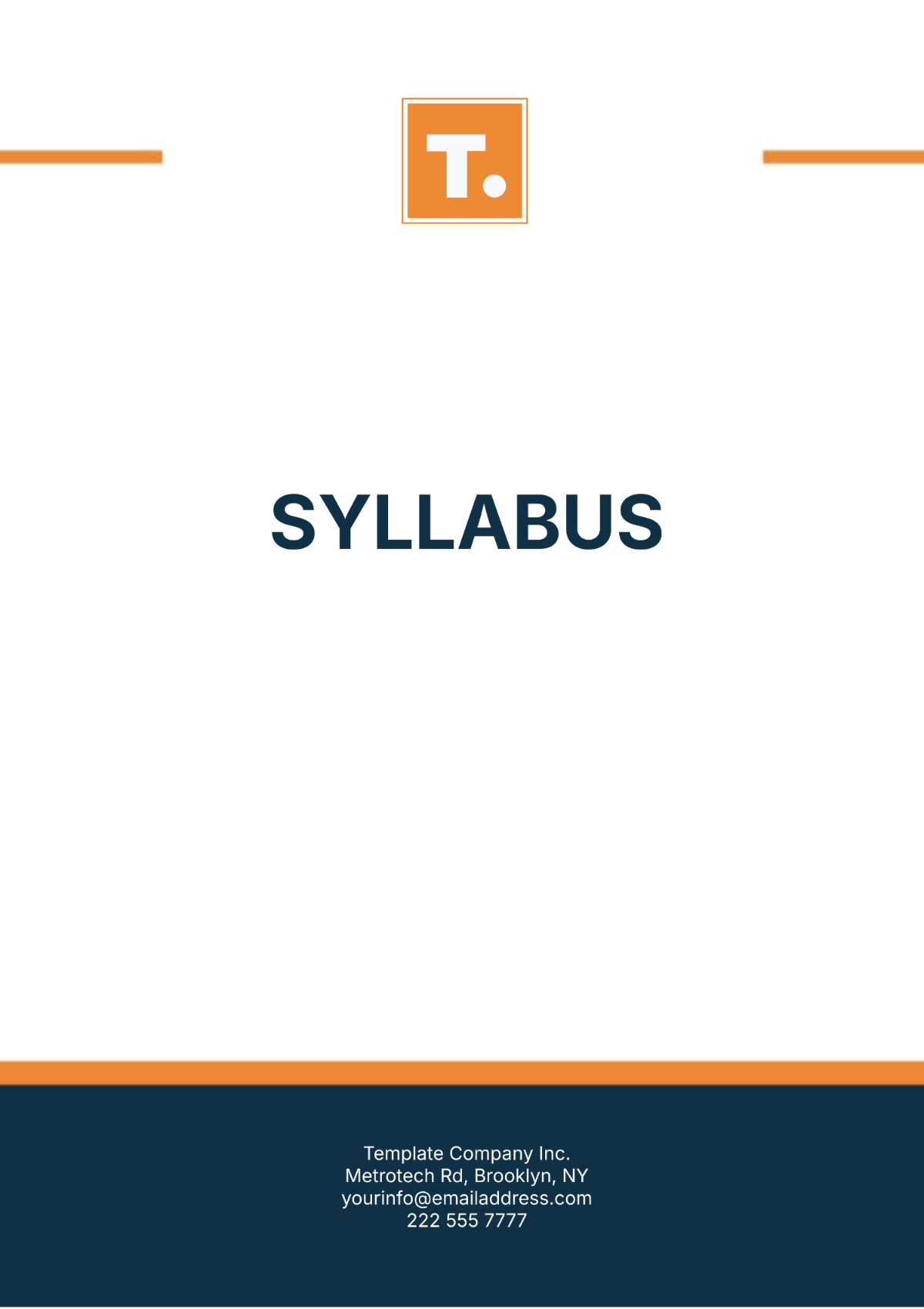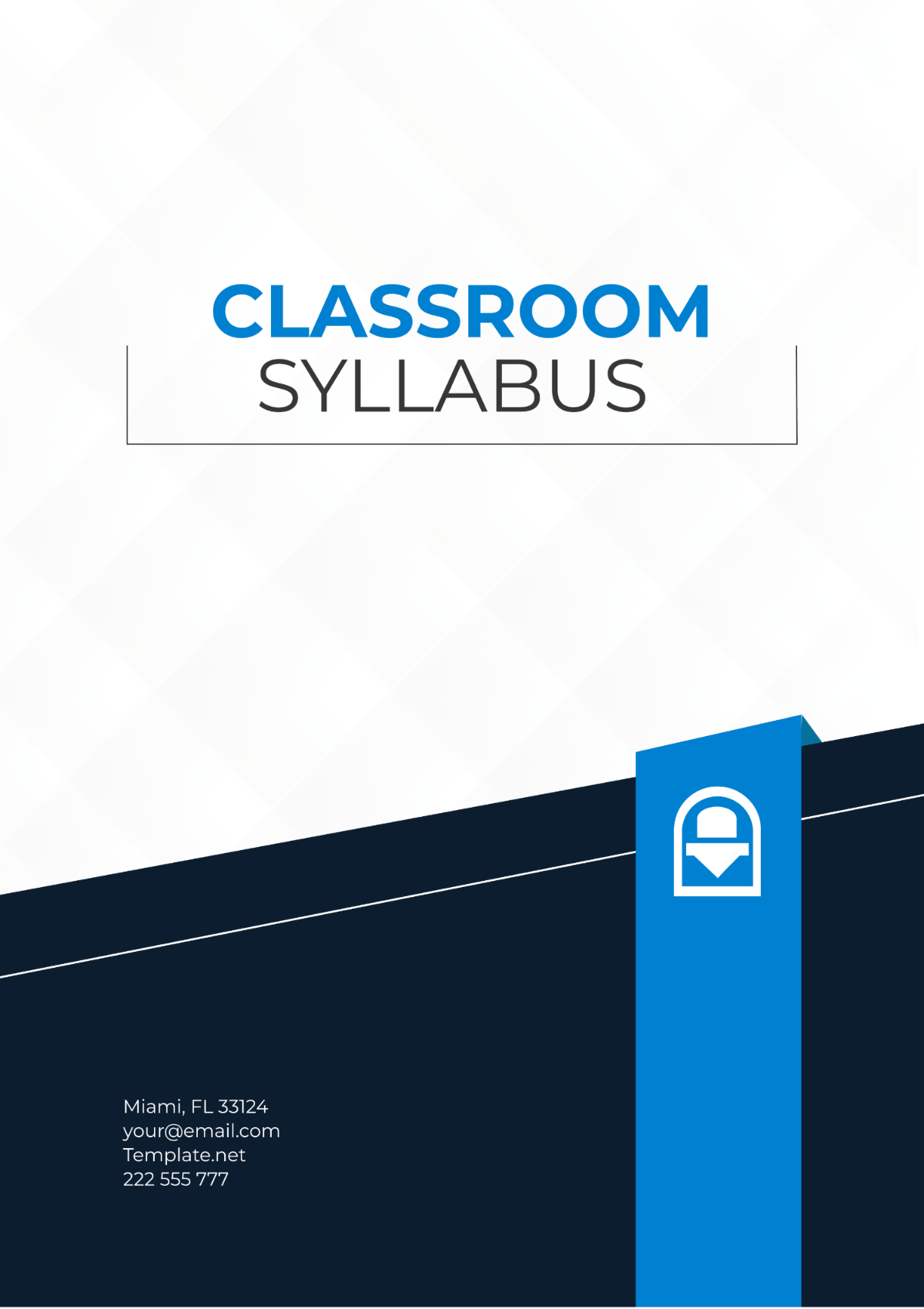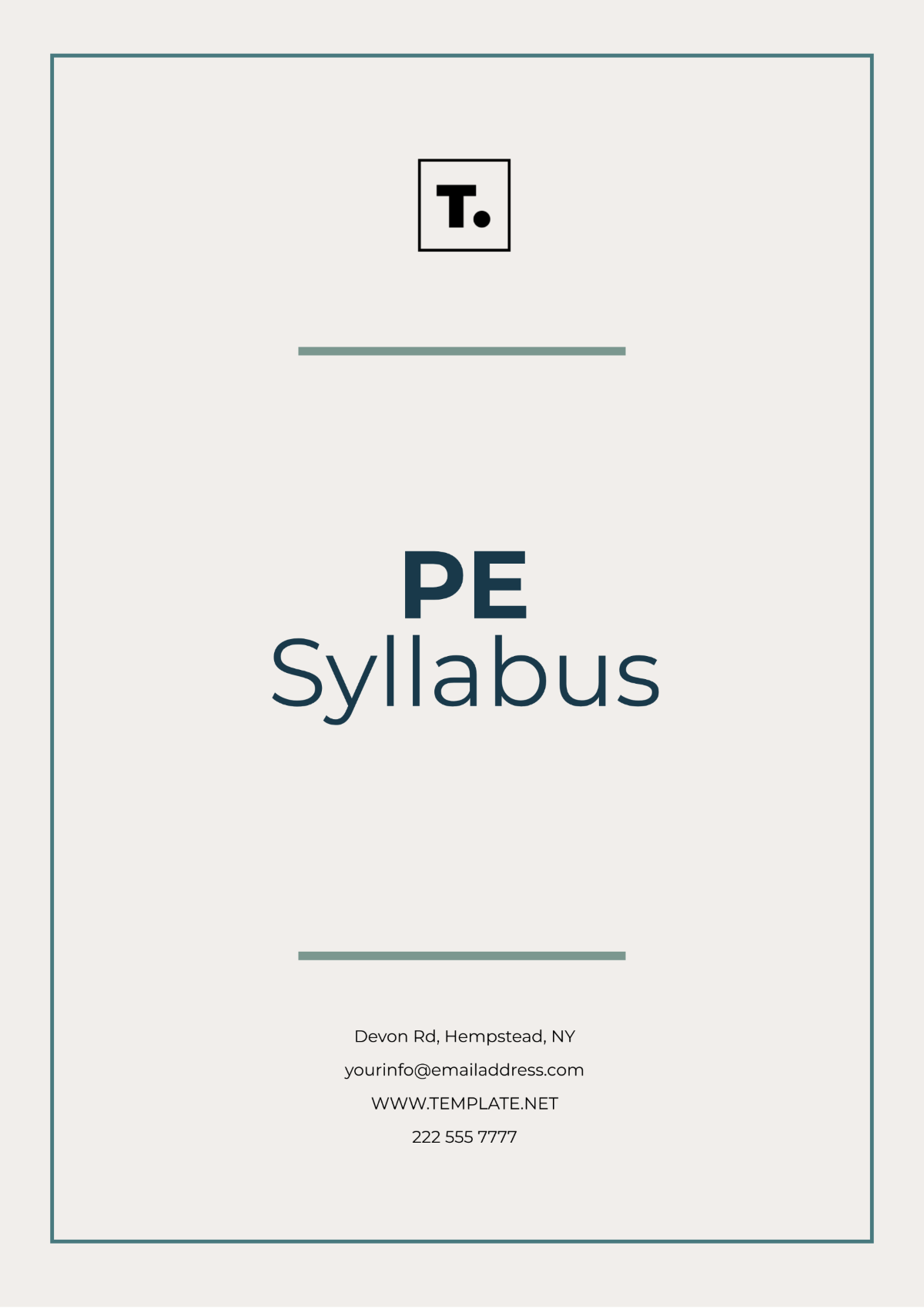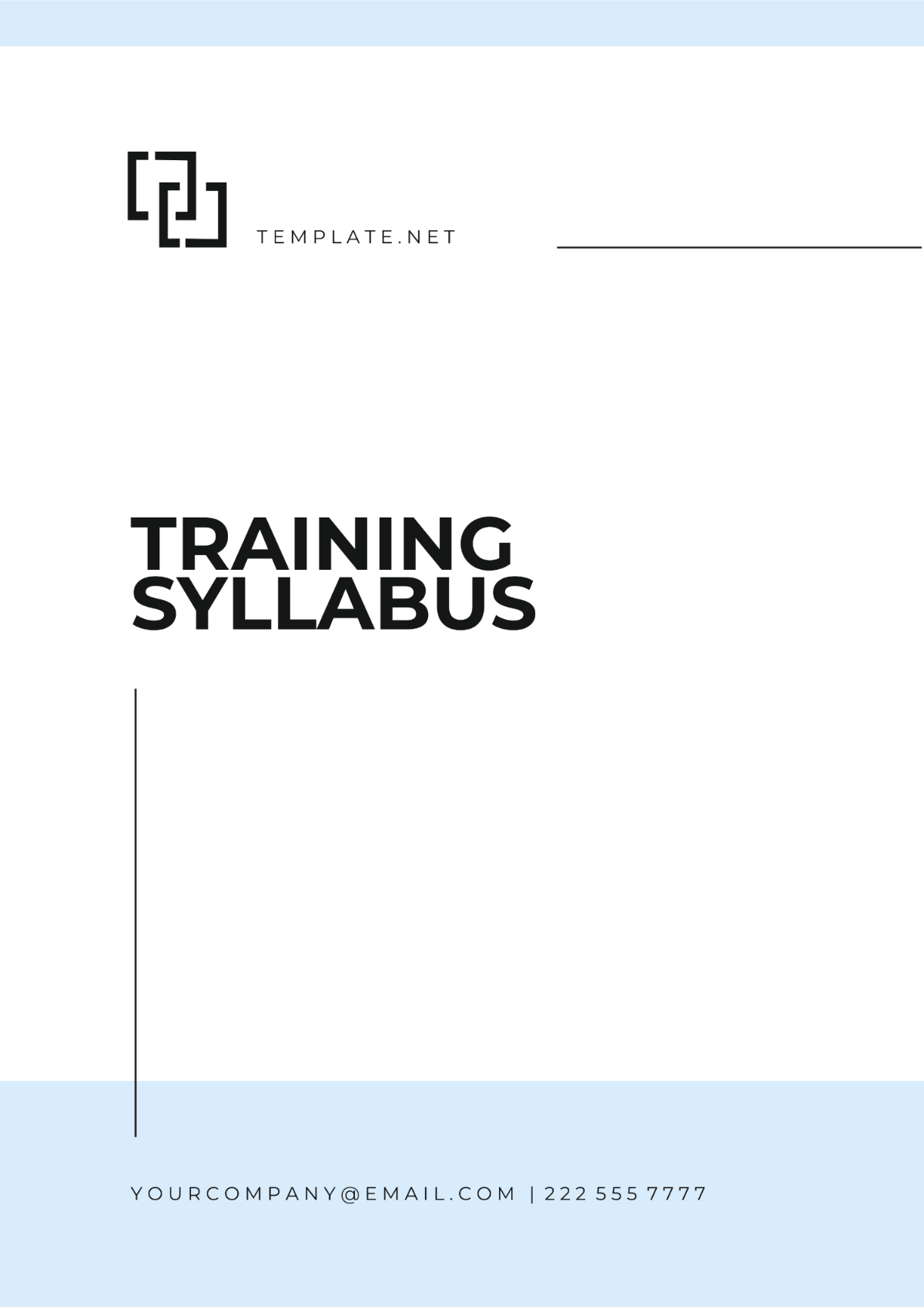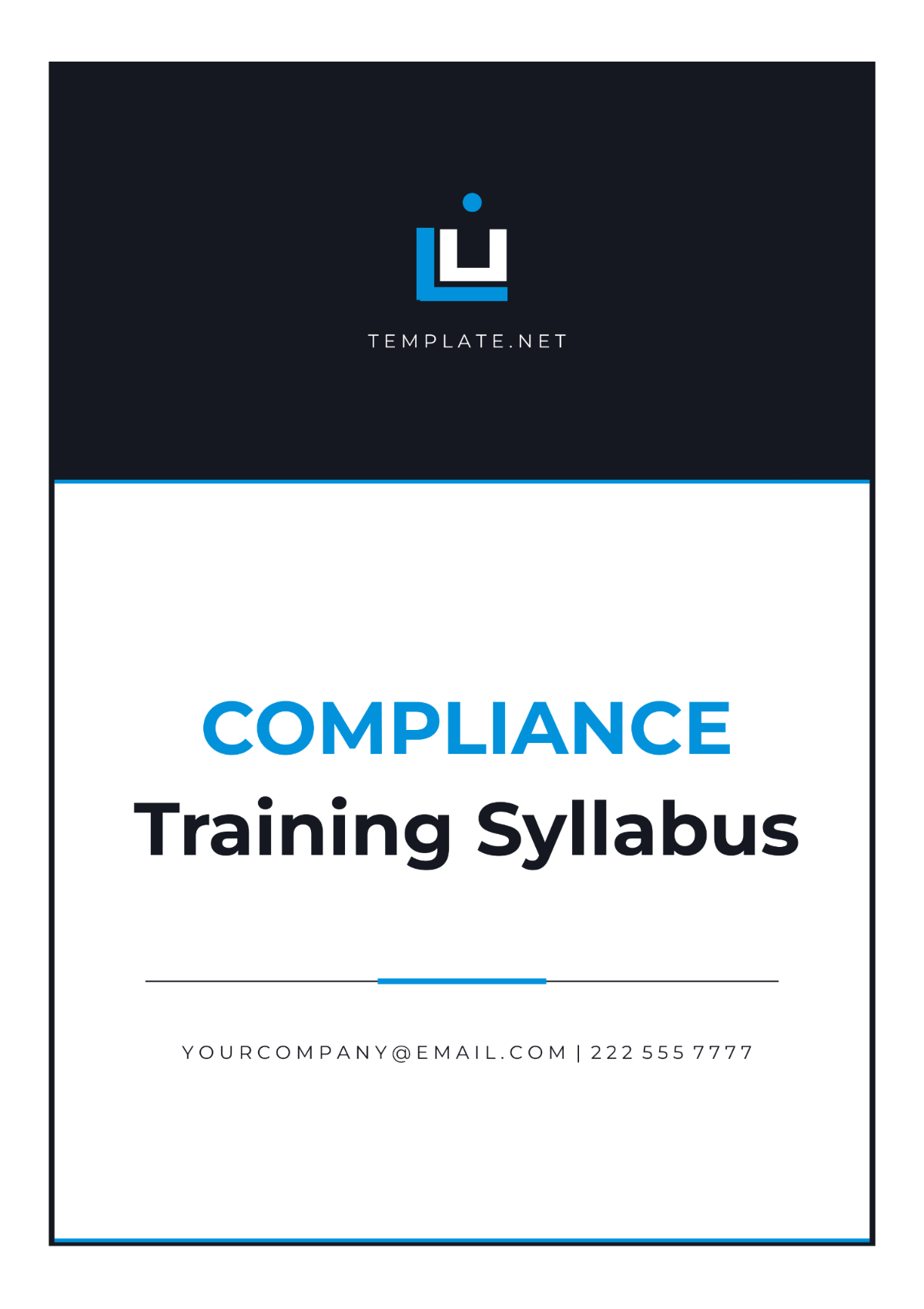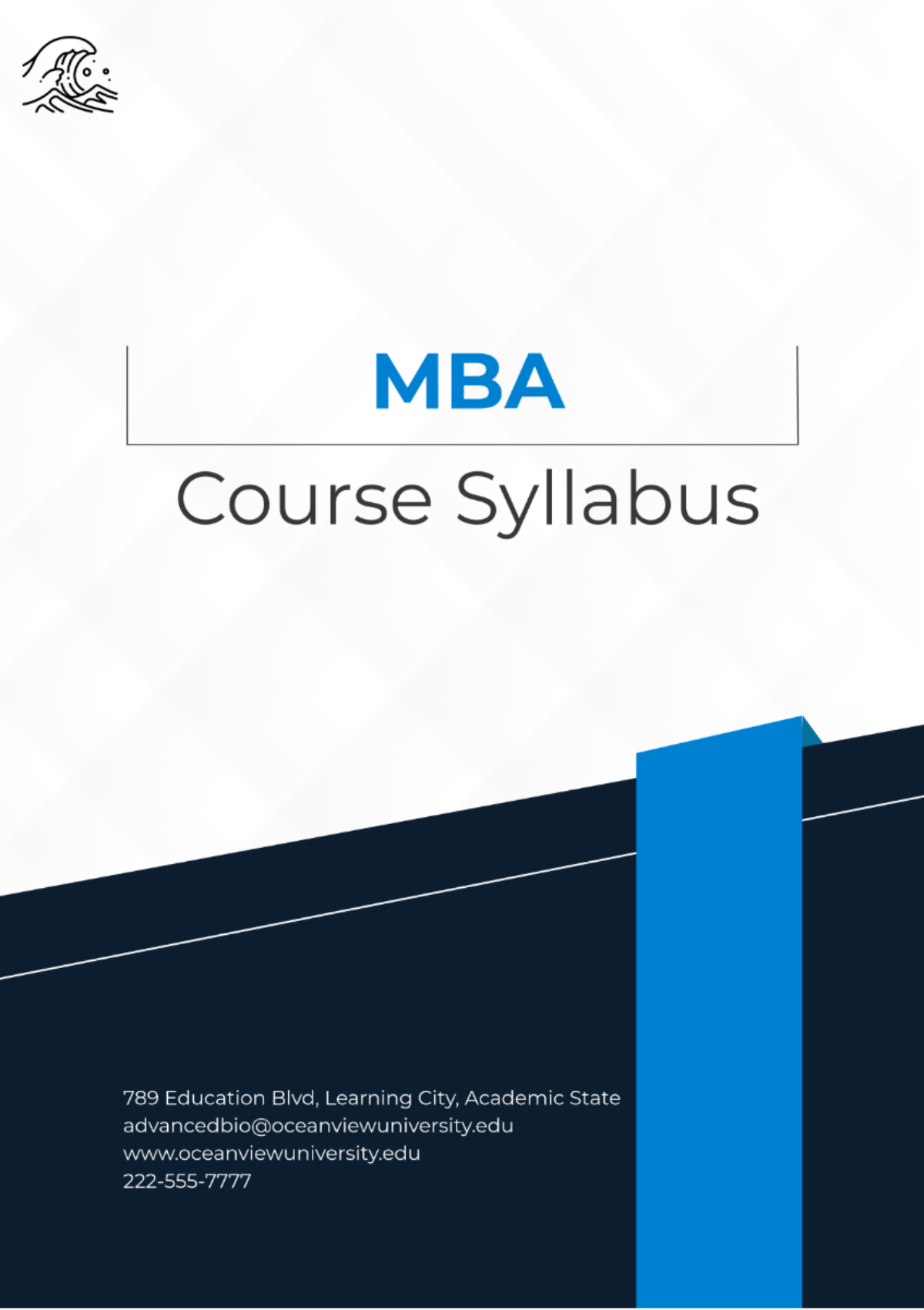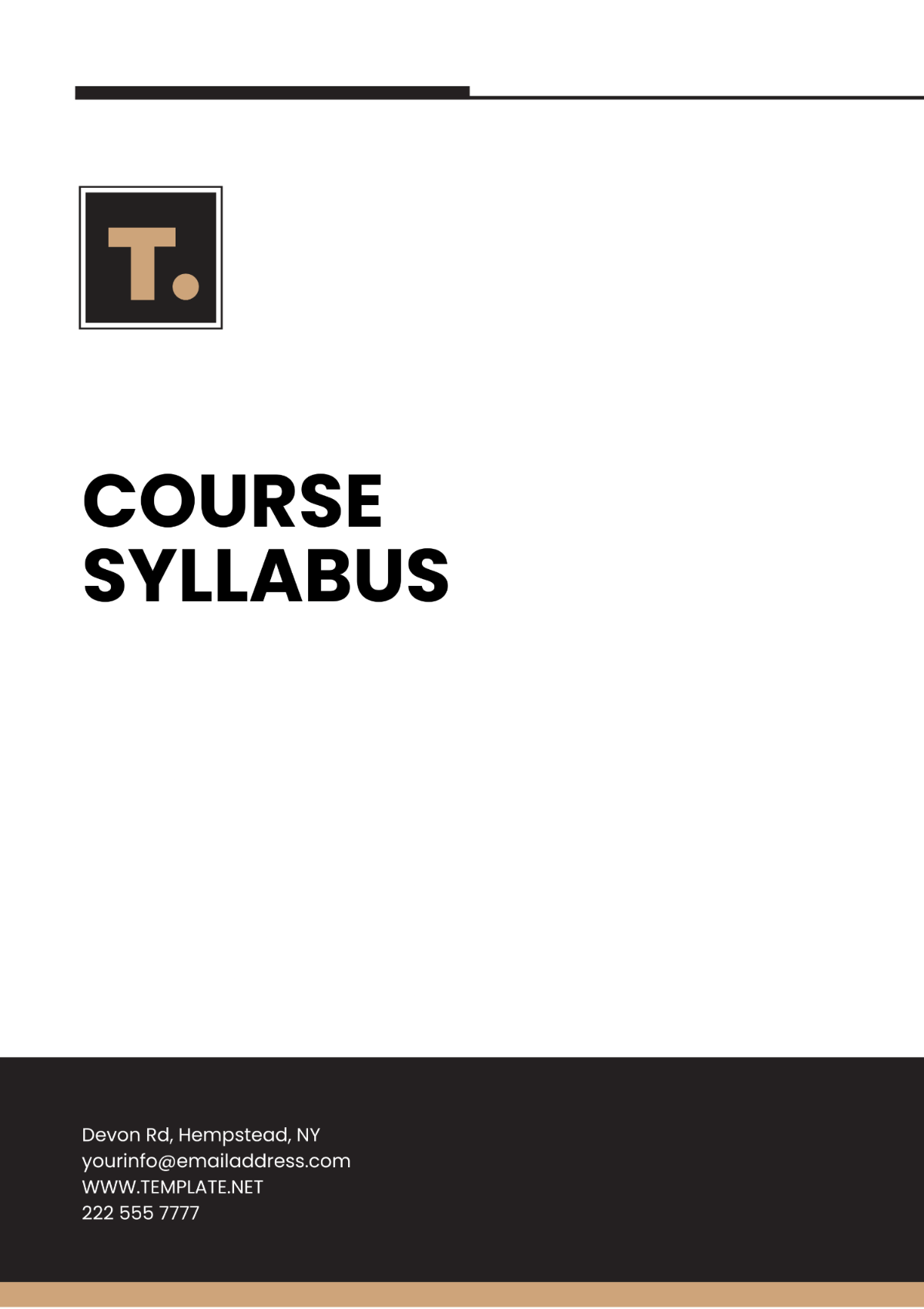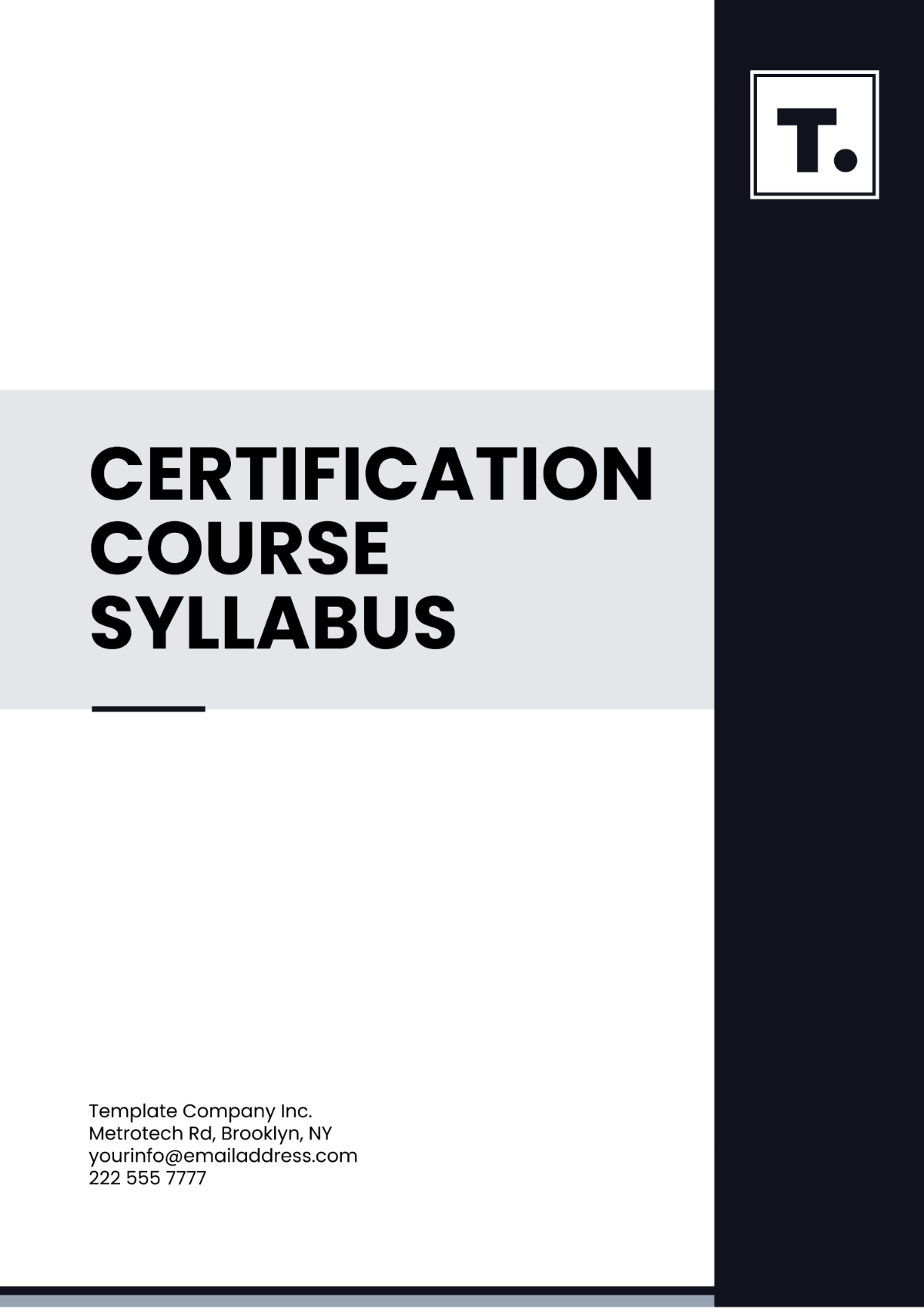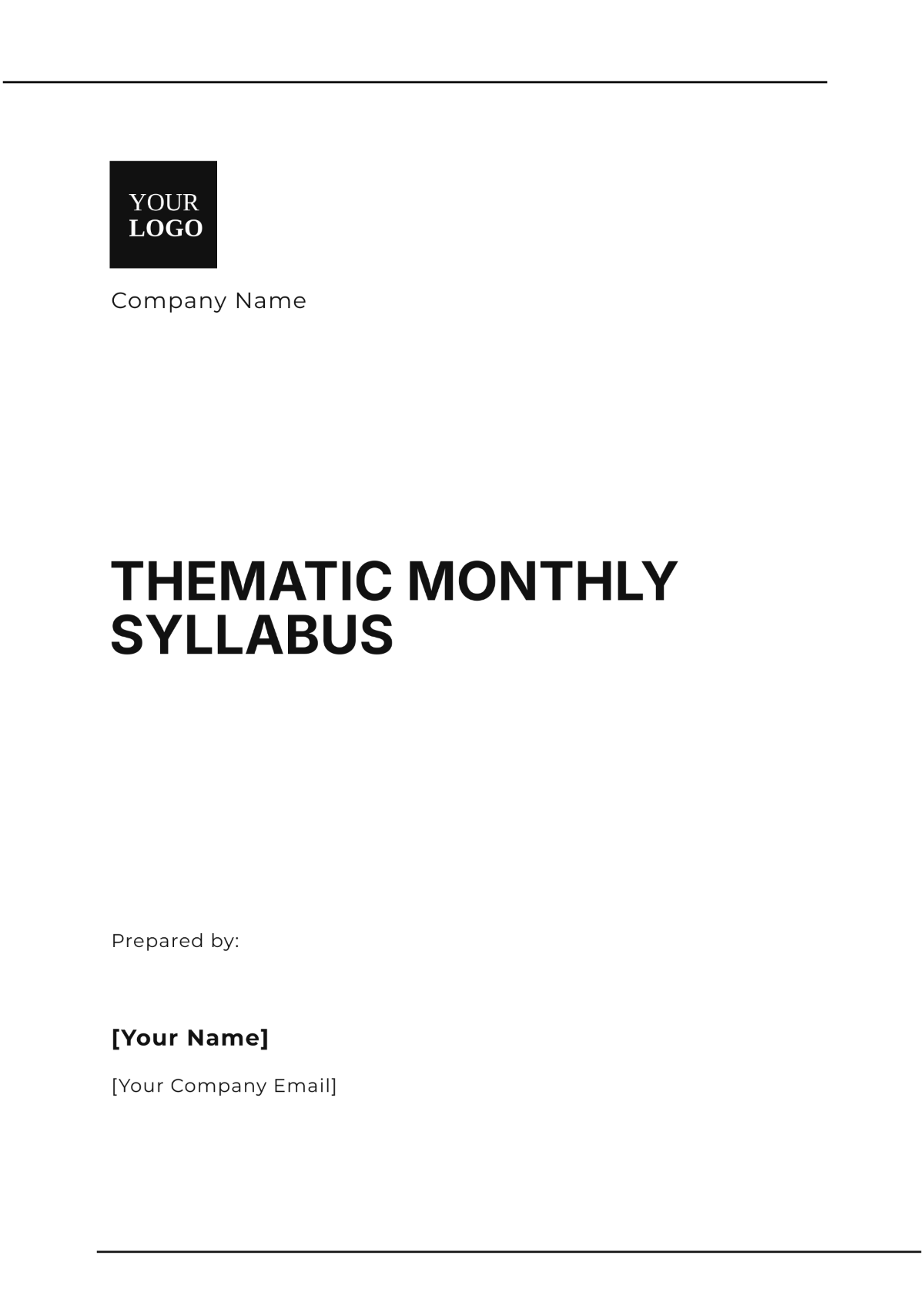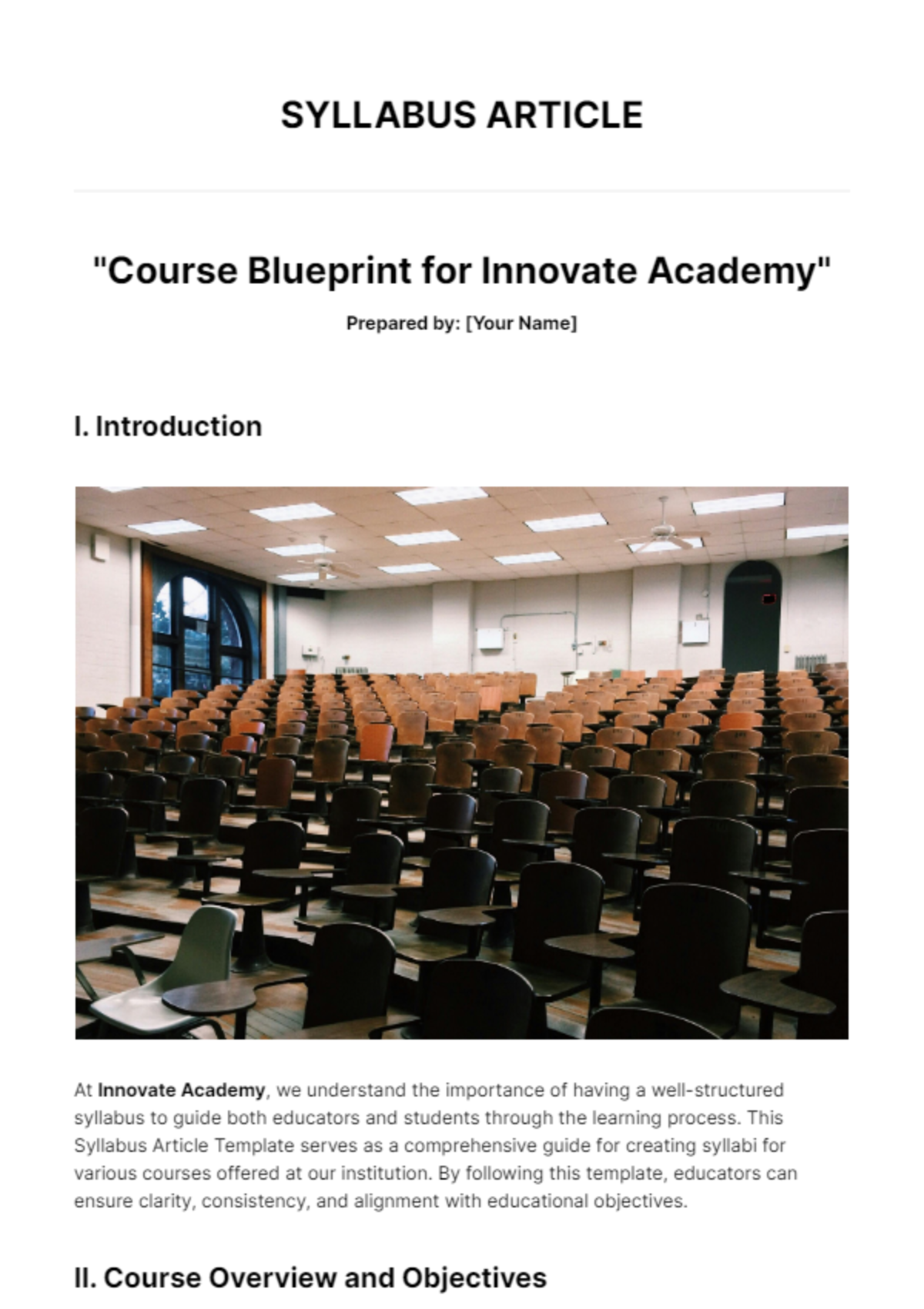Free Cybersecurity Syllabus Template
Cybersecurity Syllabus
Cybersecurity Course
Course Title | [COURSE TITLE] |
Course Code | [COURSE CODE] |
Institution Hours | [INSTITUTION HOURS] |
Class Location | [CLASS LOCATION] |
Class Time | [CLASS TIME] |
Class Duration | [DATE] - [DATE] |
1. Course Description
This program offers a fundamental insight into cybersecurity's methodologies, theories and applications, promoting exploration in areas like network security, threat analysis, ethical hacking, cryptography, and risk management. The curriculum aims to furnish learners with the essential expertise and proficiency required to evaluate and minimize cybersecurity threats in modern digital settings.
2. Instructor Information
Instructor: [YOUR NAME]
Contact: [YOUR EMAIL]
Institution: [YOUR COMPANY NAME]
3. Learning Objectives
Understand and explain the basic concepts of cybersecurity
Identify and describe the different types of cybersecurity threats and attacks
Understand and apply the concepts of network security
Develop incident response strategies
Assess the risks in the context of cybersecurity and propose solutions
4. Course Schedule
Week | Topic | Assignments/Assessments |
|---|---|---|
1 | Introduction to Cybersecurity | Reading: Introduction to Cybersecurity |
2 | Threat Landscape and Risk Management | Assignment: Threat Assessment Exercise |
3 | Cryptography Basics | Reading: Cryptography Fundamentals |
4 | Network Security | Lab: Network Security Simulation |
5 | Access Control and Authentication | Assignment: Access Control Policy Analysis |
6 | Security Operations and Incident Response | Case Study: Cybersecurity Incident Response |
7 | Ethical Hacking Techniques | Lab: Ethical Hacking Exercise |
8 | Cybersecurity Policies and Compliance | Research Paper: Compliance Framework Analysis |
5. Required Readings and Materials
Cybersecurity: A Comprehensive Guide by [AUTHOR NAME]
Network Security Essentials by [AUTHOR NAME]
Online resources and readings will be provided throughout the course.
Cybersecurity Case Studies
Relevant industry publications
6. Assignments and Assessments
Weekly quizzes to check understanding of the topics covered
Case study analysis and reports
A group project to develop a cybersecurity management strategy
Simulation activities for incident response
Final Exam
7. Course Policy
Attendance: Regular attendance is expected, with participation contributing to the overall grade.
Academic Integrity: All work must be original and properly cited. Plagiarism or cheating will result in disciplinary action.
Communication: Students are encouraged to communicate with the instructor regarding any concerns or questions about the course.
Late Work: Late assignments will be subject to a penalty unless prior arrangements are made with the instructor.
8. Grading Policy
Component | Weight |
|---|---|
Quizzes | 20% |
Assignments | 25% |
Group Project | 25% |
Participation | 10% |
Final Exam | 30% |
9. Additional Resources
Cybersecurity Tutorials and Resources Online: Explore online platforms, tutorials, and forums dedicated to cybersecurity education and skill development.
Professional Organizations (ISC² and ISACA): Access resources, certifications, and networking opportunities offered by leading cybersecurity professional associations.
Cybersecurity Conferences and Workshops: Attend industry conferences, seminars, and workshops to stay updated on the latest trends, technologies, and best practices in cybersecurity.
Cybersecurity Labs and Training Centers: Engage in hands-on cybersecurity training and simulation exercises offered by specialized labs and training centers to enhance practical skills and knowledge.
Disclaimer
Please be aware that the syllabus may be modified depending on the course requirements or unforeseen situations, with any changes formally declared in class or through email by the instructor at [YOUR COMPANY NAME].


